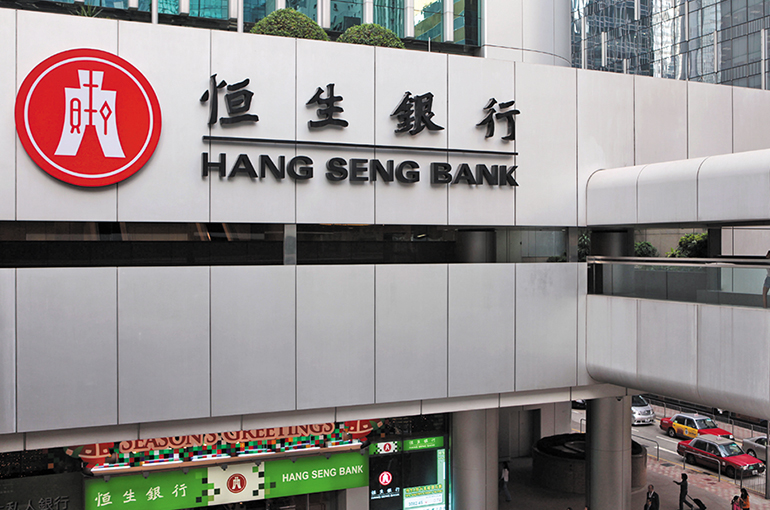Select Language:
HSBC is planning to privatize Hang Seng Bank, one of the largest local banks in Hong Kong, in a deal valued at nearly HKD 300 billion (about USD 38.5 billion). This move will lead to the bank’s removal from the Hong Kong Stock Exchange.
The two institutions announced yesterday a plan to delist Hang Seng Bank, offering HKD 155 (approximately USD 19.90) per share to take the bank private. HSBC, which is based in London, currently owns over 63% of Hang Seng Bank. As a result, this transaction could require HSBC to spend more than HKD 100 billion in cash.
Following the announcement, Hang Seng Bank’s stock closed today at HKD 150.40, up 0.4%, after a nearly 26% jump yesterday. Meanwhile, HSBC’s Hong Kong-listed shares fell by 0.5% today to HKD 103.50, after losing 5.6% the previous day.
The offer price for Hang Seng represents a significant premium, with a valuation at 1.8 times its book value—much higher than the median ratio of 0.4 among similar banks listed in Hong Kong. It also exceeds Hang Seng Bank’s closing price on October 8 by 30.3%.
Founded in 1933, Hang Seng Bank is among Hong Kong’s oldest local financial institutions. According to the announcement, the bank will continue to operate with its licensed status under the Hong Kong Banking Ordinance and maintain its independent governance, branding, market position, and branch network.
HSBC stated that this privatization reflects a major investment in Hong Kong and emphasizes its confidence in the city’s ongoing role as a top international financial hub. The move is expected to unlock more investment opportunities for HSBC’s Asia-Pacific operations and Hang Seng Bank, fostering growth in Hong Kong and supporting the city’s economic development.
Wu Lixian, an international securities strategist at Everbright Securities, mentioned that Hang Seng Bank’s first-half results showed ongoing pressure from non-performing loans. Considering the 30% premium and the recent stock price highs, many shareholders are likely to accept the buyout, he suggested.
However, for HSBC, this privatization involves a significant cash investment. Once completed, Hang Seng Bank’s non-performing loans will be consolidated into HSBC’s financials, potentially increasing its bad debt ratio—an aspect that partly explains HSBC’s recent decline in stock price. In the medium to long term, though, this move could enhance operational integration between the two banks and align with HSBC’s strategy to improve efficiency, Wu added.







